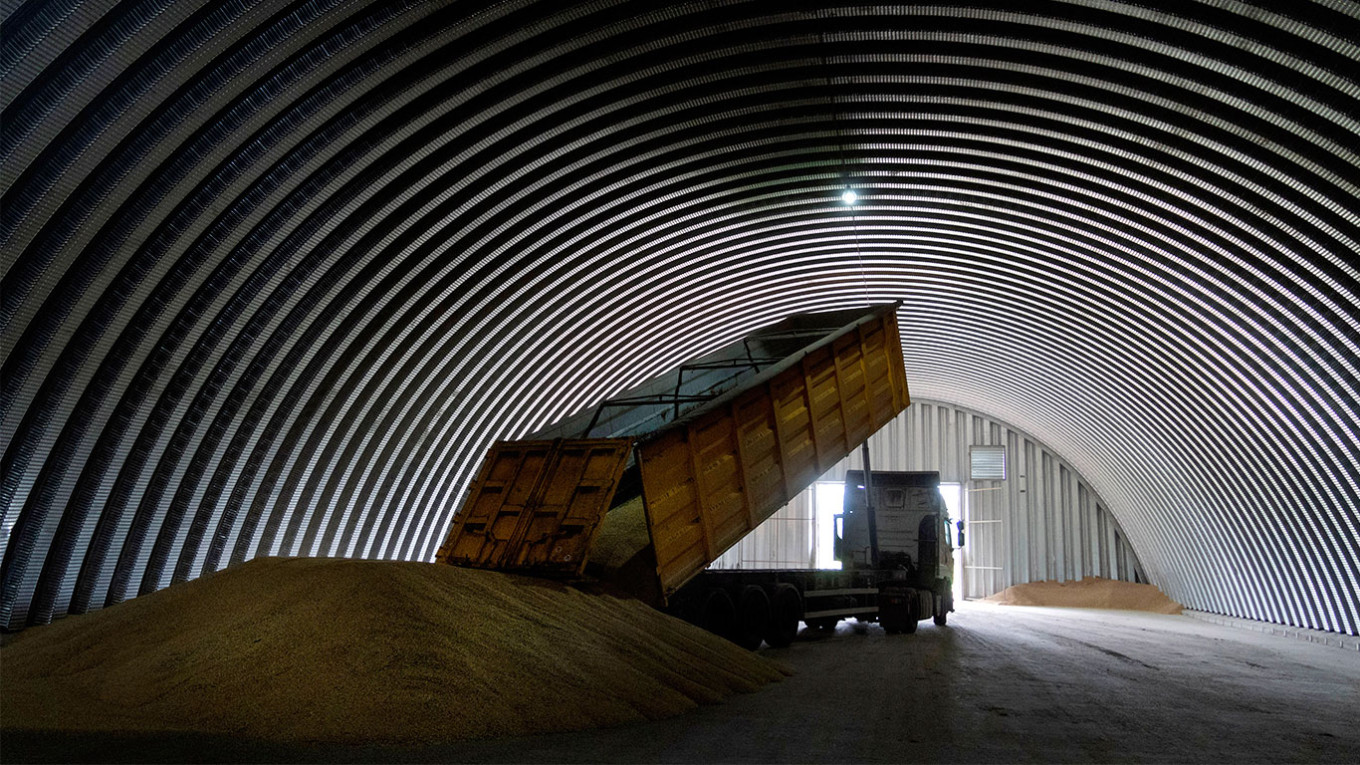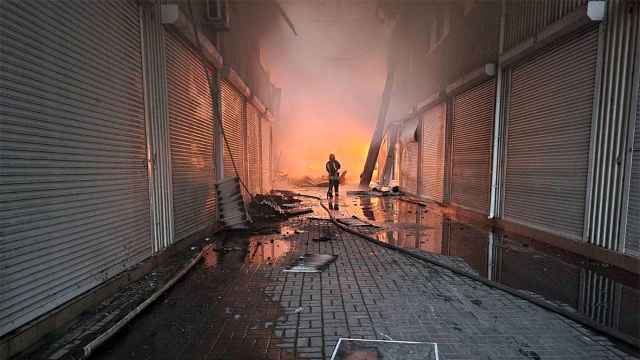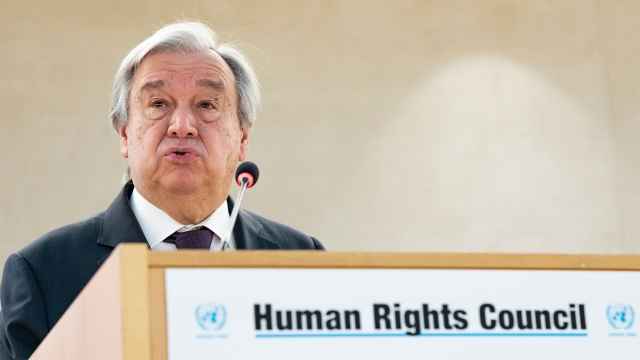Russia has agreed to extend the Ukraine grain export deal following talks with the United Nations on Monday — but only for a further 60 days.
Moscow said it wanted to see "tangible progress" on a parallel agreement on Russian exports before the deal comes up for renewal again.
The grain export deal has helped ease the global food crisis triggered by Russia's full-scale invasion of Ukraine in February last year. The invasion saw Ukraine's Black Sea ports blocked by warships until a deal signed in July allowed for the safe passage of exports of critical grain supplies.
More than 24.1 million tons have been exported under the UN and Turkey-brokered Black Sea Grain Initiative (BSGI), according to the United Nations.
The initial 120-day agreement was extended once in November and was due to expire on March 18. The Kremlin had cast doubt on whether it would agree to a fresh extension, claiming that the twin deal on Russian exports was not being respected.
Moscow wants to see "deeds, not words" on upholding this second part of the package, Deputy Foreign Minister Sergey Vershinin said after concluding the talks with top United Nations officials at the Palais des Nations UN headquarters in Geneva.
"The Russian side...does not object to another extension of the 'Black Sea Initiative' after its second term expiration on March 18, but only for 60 days," Vershinin said in a statement issued by the Russian mission in Geneva.
"Our further stance will be determined upon the tangible progress on normalization of our agricultural exports, not [in] words, but in deeds. It includes bank payments, transport logistics, insurance, 'unfreezing' of financial activities and ammonia supplies via the Tolyatti-Odesa pipeline."
Sanctions exemptions 'inactive' claim
Vershinin led the Russian delegation in talks with UN humanitarian chief Martin Griffiths and Rebeca Grynspan, head of the UN's trade and development agency UNCTAD.
While the BSGI concerns the export of Ukrainian grain, the second agreement, between Moscow and the UN, is intended to facilitate the export of Russian food and fertilizers, which are exempt from Western sanctions imposed on Moscow.
"The comprehensive and frank conversation has once again confirmed that while the commercial export of Ukrainian products is carried out at a steady pace, bringing considerable profits to Kyiv, restrictions on the Russian agricultural exporters are still in place," Vershinin said.
"The sanctions exemptions for food and fertilizers announced by Washington, Brussels and London are essentially inactive."
Nearly half of the exports shipped under the BSGI deal are corn and more than a quarter are wheat, according to UN data.
Around 45% of the exports went to developed countries. The biggest recipient was China, followed by Spain, Turkey, Italy and the Netherlands.
A Message from The Moscow Times:
Dear readers,
We are facing unprecedented challenges. Russia's Prosecutor General's Office has designated The Moscow Times as an "undesirable" organization, criminalizing our work and putting our staff at risk of prosecution. This follows our earlier unjust labeling as a "foreign agent."
These actions are direct attempts to silence independent journalism in Russia. The authorities claim our work "discredits the decisions of the Russian leadership." We see things differently: we strive to provide accurate, unbiased reporting on Russia.
We, the journalists of The Moscow Times, refuse to be silenced. But to continue our work, we need your help.
Your support, no matter how small, makes a world of difference. If you can, please support us monthly starting from just $2. It's quick to set up, and every contribution makes a significant impact.
By supporting The Moscow Times, you're defending open, independent journalism in the face of repression. Thank you for standing with us.
Remind me later.






